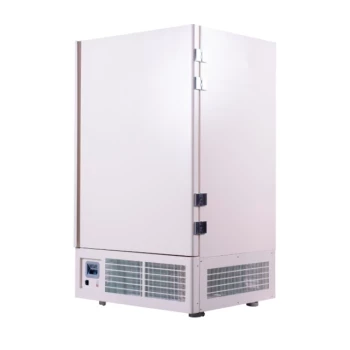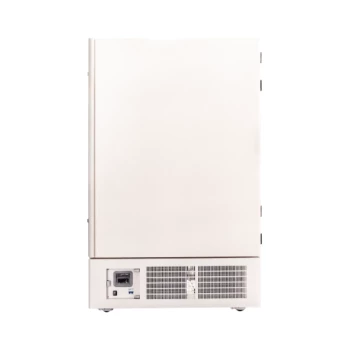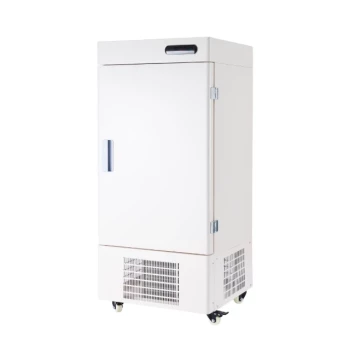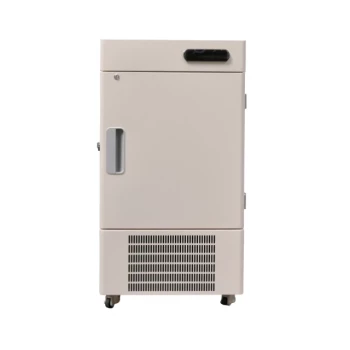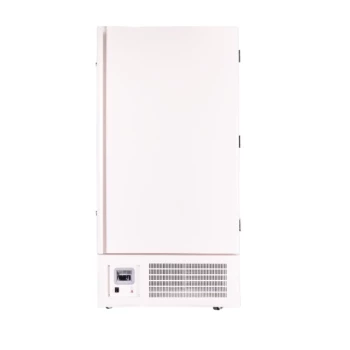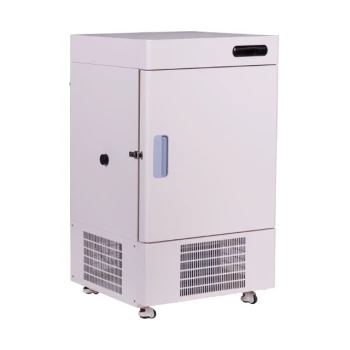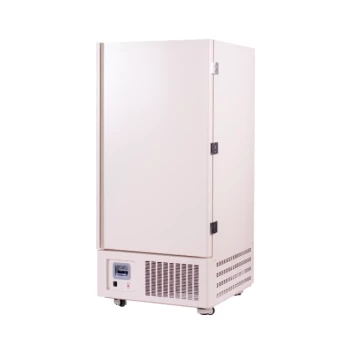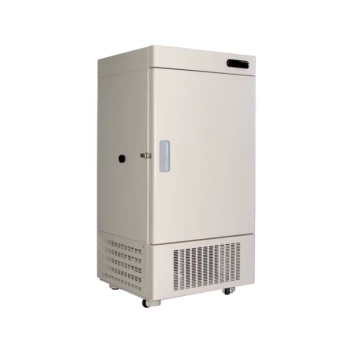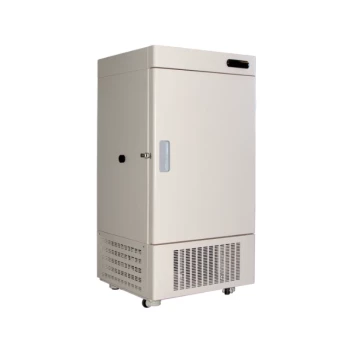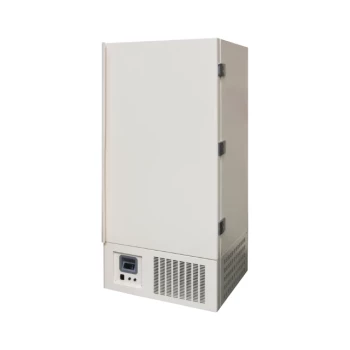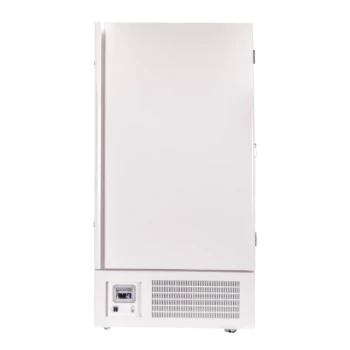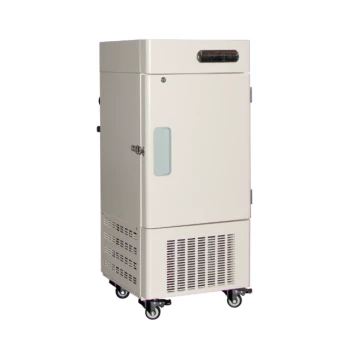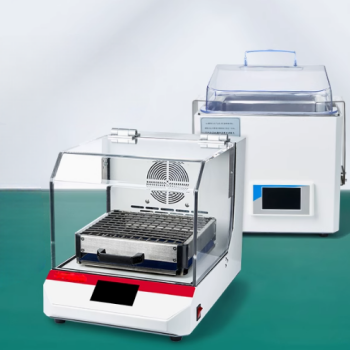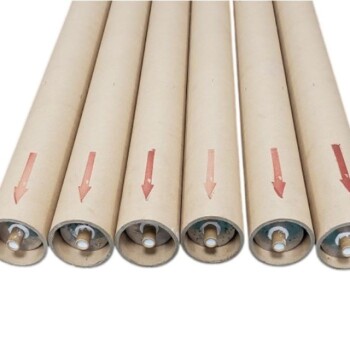Selecting an ultra-low temperature (ULT) freezer requires a methodical evaluation of its core performance, long-term operational costs, and the reliability features that protect your samples. The most critical factors to consider are the specific temperature range you need, the freezer's storage capacity relative to its physical footprint, its energy consumption, and the robustness of its monitoring and backup systems.
Beyond the technical specifications, choosing a ULT freezer is fundamentally a risk management decision. The right choice balances initial cost with long-term energy efficiency and reliability to ensure the absolute integrity and viability of your critical biological materials.
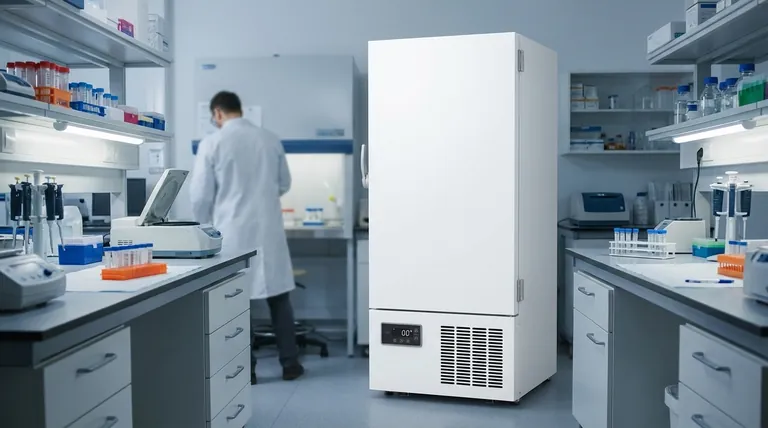
Core Performance and Capacity
The primary function of a ULT freezer is to create a stable, ultra-low temperature environment. Its performance is measured by its ability to reach, maintain, and recover this state efficiently.
Temperature Range and Uniformity
A ULT freezer typically operates between -40°C and -86°C. Ensure the model you choose can comfortably achieve and hold your required setpoint.
More importantly, look for excellent temperature uniformity. This means the temperature is consistent throughout the entire cabinet, preventing warmer spots that could compromise samples over time.
Storage Capacity and Footprint
Capacity is measured in liters or the number of standard 2-inch boxes it can hold. Evaluate your current and future storage needs realistically.
Crucially, you must balance this internal volume with the freezer's external footprint. Ensure you have adequate physical space in your lab, including necessary clearance for ventilation around the unit.
Door-Open Recovery
Every time the door is opened, warm air enters and the internal temperature rises. Door-open recovery is the time it takes for the freezer to return to its setpoint.
A fast recovery time is critical in busy labs with frequent access, as it minimizes temperature fluctuations and reduces stress on your samples.
Operational Cost and Efficiency
A ULT freezer is a significant capital investment that runs 24/7, making its operational cost a major long-term factor.
Energy Consumption
These units are among the most energy-intensive pieces of equipment in a laboratory. Prioritizing a model with superior energy efficiency will result in substantial cost savings over the freezer's lifespan.
Noise Level
ULT freezer compressors can be very loud, impacting the work environment. If the unit will be located in a main lab area, consider models engineered with low-noise technology.
Maintenance and Service
Reliability is paramount. Evaluate the manufacturer's warranty, availability of extended warranties, and options for preventive maintenance plans. Proactive service can prevent catastrophic failures and costly downtime.
Reliability and Sample Protection
The ultimate purpose of a ULT freezer is to protect its invaluable contents. Reliability features are not optional—they are essential.
Integrated Monitoring and Alarms
The freezer must have a robust, built-in system to monitor its internal temperature. A clear digital display and an alarm system that signals temperature deviations, power failures, or a door left ajar are non-negotiable features.
Backup Systems
For irreplaceable or high-value samples, a backup system is the ultimate safety net. These systems automatically inject liquid nitrogen (LN2) or carbon dioxide (CO2) to maintain temperature in the event of a power outage or primary compressor failure.
Physical Build and Compatibility
Ensure the freezer's interior racking system is compatible with your existing storage boxes and containers. A well-designed interior maximizes usable space and makes sample organization and retrieval more efficient.
Understanding the Trade-offs
Choosing a ULT freezer involves balancing competing priorities. Understanding these trade-offs is key to making an informed decision.
Initial Cost vs. Total Cost of Ownership
A lower-priced freezer may seem attractive, but it can easily become more expensive over time due to higher energy consumption and a greater risk of failure. A premium model with better efficiency and reliability often has a lower total cost of ownership.
Upright vs. Chest Freezers
Upright freezers offer easier access and organization, but they lose more cold air when the door is opened. Chest freezers are more energy-efficient and maintain temperature better during an opening, but accessing samples at the bottom can be difficult.
Performance vs. Energy Use
The most powerful compressors may offer the fastest temperature recovery times but often consume more energy. You must decide if the needs of your lab workflow justify the higher operational cost.
Making the Right Choice for Your Goal
Select a freezer by matching its strengths to your lab's primary priorities.
- If your primary focus is budget and long-term cost: Prioritize a model with documented high energy efficiency and a comprehensive warranty to minimize operational expenses.
- If your primary focus is protecting irreplaceable samples: Prioritize a freezer with a robust CO2 or LN2 backup system, excellent temperature uniformity, and rapid alarm notifications.
- If your primary focus is a busy, high-traffic lab: Prioritize fast door-open recovery times and an intuitive organizational system to maximize workflow efficiency and minimize sample exposure.
Ultimately, a thorough evaluation of these factors will empower you to select a ULT freezer that serves as a reliable guardian for your most critical work.
Summary Table:
| Factor | Key Considerations |
|---|---|
| Core Performance | Temperature range, uniformity, storage capacity, door-open recovery time |
| Operational Cost | Energy consumption, noise level, maintenance plans, warranty |
| Reliability & Safety | Integrated alarms, backup systems (LN2/CO2), build quality |
| Trade-offs | Initial cost vs. total cost of ownership, upright vs. chest design |
Protect your critical samples with confidence. Selecting the right ultra-low temperature freezer is essential for safeguarding your research and biological materials. At KINTEK, we specialize in providing reliable lab equipment, including ULT freezers, designed to meet the rigorous demands of modern laboratories. Our experts can help you choose a model that balances performance, energy efficiency, and sample security—ensuring your investment delivers long-term value and peace of mind. Contact us today to discuss your lab's specific needs and find the perfect solution. Reach out now via our contact form!
Visual Guide
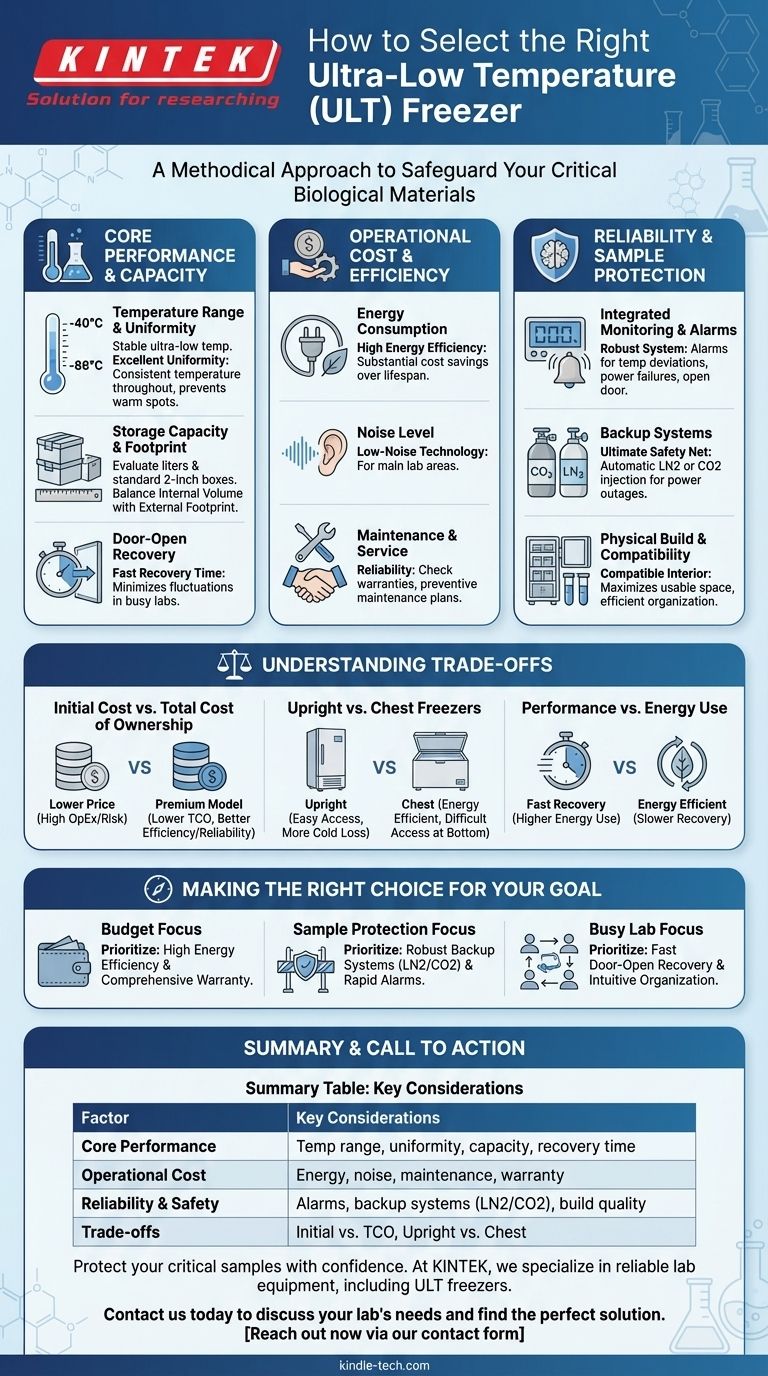
Related Products
- 808L Precision Laboratory Vertical Ultra Low Temperature Freezer
- 938L Vertical Ultra Low Temperature Freezer for Advanced Laboratory Storage
- 158L Precision Vertical Ultra Low Freezer for Laboratory Applications
- 58L Precision Laboratory Ultra Low Temperature Upright Freezer for Critical Sample Storage
- 508L Advanced Vertical Ultra Low Temperature Freezer for Critical Laboratory Storage
People Also Ask
- How do Ultra-Low Temperature freezers ensure the integrity of microbiological samples? Maintain Stability for Critical Research
- Why are ULT freezers considered vital equipment in labs? Ensuring Uncompromised Sample Integrity for Critical Research
- How does fast temperature recovery benefit ultra-low freezers? Protect Sample Integrity and Lab Efficiency
- What are ultra-low temperature freezers designed for? Preserving Your Most Valuable Biological Samples
- What are the key features to look for in an ultra-low temperature freezer for mRNA vaccine storage? Essential Features for Absolute Vaccine Integrity
